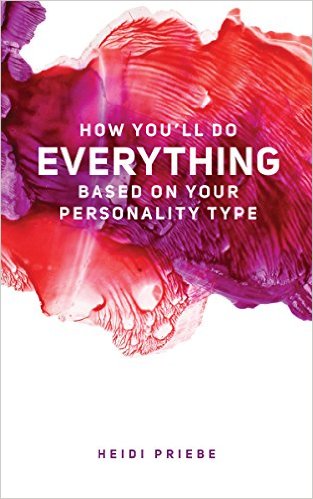
Here Is Which Myers-Briggs Personality Type You Should Go To Based On What Kind Of Advice You Need
When you’re feeling stuck and need help seeing new possibilities, go to an ENFP or an ENTP.
By ![]() Heidi Priebe
Heidi Priebe

When you’re feeling stuck and need help seeing new possibilities, go to an ENFP or an ENTP.
ENFPs and ENTPs lead with extroverted intuition, a cognitive function that is constantly scanning the horizons for new, exciting possibilities. No situation is too odd or unconventional for these eclectic types and if it’s an undiscovered solution you’re searching for, they’re the ones to go to. You’ll walk away with ten thousand different solutions to any given problem or situation and feel supremely empowered to boot.
When you’re having trouble setting or implementing concrete goals, go to an ESTJ or an ENTJ.
ESTJs and ENTJs lead with extroverted thinking, a cognitive function that focuses on achieving one’s desired outcomes at basically any cost. These types are skilled at setting concrete goals that will help you get what you want in as direct and efficient a manner as possible. Go to them when you aren’t sure how to achieve a goal or need help implementing plans. You’ll walk away with a clear and concise plan of action.
When you need a reality check or are lacking the motivation to go directly for what you want, go to an ESTP or an ESFP.
ESFPs and ESTPs lead with extroverted sensing, a cognitive function that is allergic to bullshit. These types are skilled at cutting to the chase and going directly for what they want – and they’ll encourage you to do the exact same. Visit these types when you need to cut the bullshit from your life and pursue the most direct route to whatever you’re after.
When you’re having trouble understanding how your decisions might affect the people around you, go to an ESFJ or an ENFJ.
ESFJs and ENFJs lead with extroverted feeling, a cognitive function that is highly in tune with the emotional experiences those around them. When you’re at a loss as to how to appease a group or handle an interpersonal conflict, visit either of these people-savvy types. They’ll help you harmonize with and better relate to just about any personality.
When you need help understanding the outcomes of various possible courses of action, go to an INTJ or an INFJ.
INTJs and INFJs are constantly examining various possible courses of action and how they are likely to unfold. When you’re unsure about the long-term consequences of an action, visit either of these future-focused types. They’ll help you examine the various possible outcomes of just about any situation and narrow down which plan of attack will best serve you in the long run.
When you need help implementing order in your life or optimizing your existing routine, go to an ISTJ or an ISFJ.
ISTJs and ISFJs lead with introverted sensing, a cognitive function that sources reliable solutions to problems and implements order in a concrete way. Go to these grounded types when you’re having trouble finding a routine that works for you or understanding which tried and true solutions will best suit your needs. They’ll help you organize and optimize your existing routine in order to overcome any challenges you’re facing.
When you need to find a logical yet unconventional way of getting something done, go to an ISTP or an INTP.
ISTPs and INTPs lead with introverted thinking, a cognitive function that breaks down logical systems and finds the loopholes and hacks that exist within them. Go to these clever types when you’re looking for a shortcut or workaround for a logistical problem that conventional sources just can’t give you. They’ll almost always be capable of providing you with a creative method of achieving what you want.
When you need help working through your feelings and understanding their underlying causes, go to an INFP or an ISFP.
INFPs and ISFPs lead with introverted feeling, a cognitive function that seeks to deeply understand the emotional experiences and core motivations of both themselves and others. When you’re seeking to achieve an in-depth understanding of why you behave the way you do and what your emotions truly mean, visit either of these emotionally savvy types. They’ll help you understand yourself in a way you may not have known it was even possible to. ![]()












